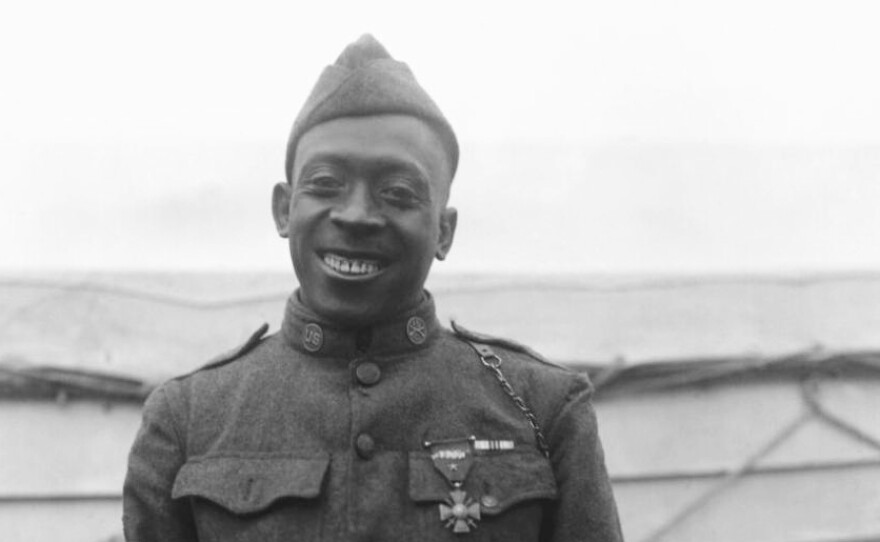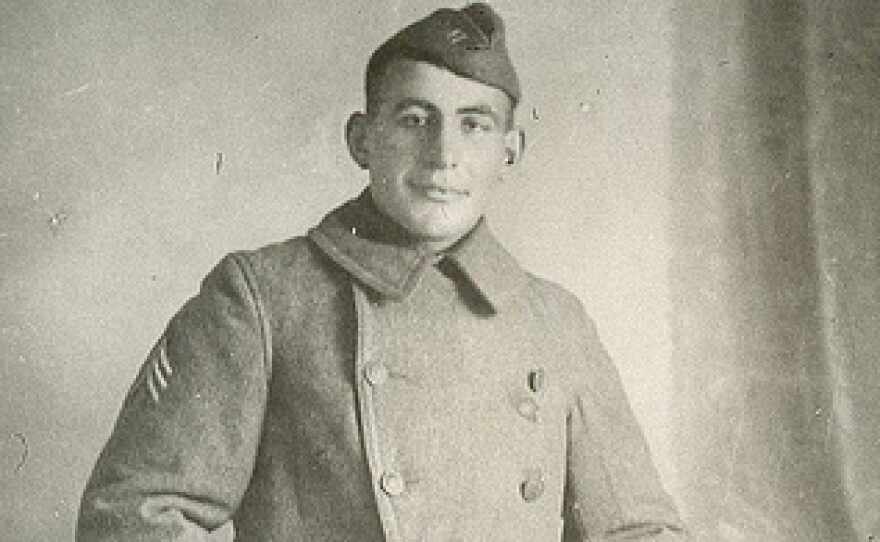

Nearly 100 years after their heroic deeds, two World War I Army veterans are being awarded America's highest military honor Tuesday. Historians say Sgt. William Shemin and Pvt. Henry Johnson hadn't been properly recognized for their bravery under fire.
President Obama will make the posthumous awards in the East Room of the White House, in a ceremony scheduled to begin at 11:15 a.m. ET; we'll update this post as the event unfolds – and you can watch it live:
Shemin's medal will be accepted by his daughter, Elsie Shemin-Roth of Webster Grove, Mo. Johnson's medal will be accepted by Command Sergeant Major Louis Wilson of the New York National Guard.
"Pentagon officials and others say these guys were overlooked – largely because of anti-Semitism and racism at the time," NPR's Tom Bowman reports. The recognition continues a trend that stretches back to the Clinton administration, as the U.S. military tries to correct past injustices.
Both of the soldiers recognized today distinguished themselves during combat in France.
Johnson served with the all-black 369th Infantry Regiment, which came to be known as the Harlem Hellfighters. Here's how the White House describes the events that earned him the Medal of Honor:
"While on night sentry duty on May 15, 1918, Private Johnson and a fellow Soldier received a surprise attack by a German raiding party consisting of at least 12 soldiers. While under intense enemy fire and despite receiving significant wounds, Johnson mounted a brave retaliation resulting in several enemy casualties. When his fellow soldier was badly wounded, Private Johnson prevented him from being taken prisoner by German forces. Private Johnson exposed himself to grave danger by advancing from his position to engage an enemy soldier in hand-to-hand combat. Displaying great courage, Private Johnson held back the enemy force until they retreated."
Or as his fellow soldier Melville Miller said in a 1977 documentary called Men of Bronze: "He shot and he cut and he swung his rifle around. He had 21 wounds in his body but he refused to die."
Shemin served with the 4th Infantry Division. The White House describes his actions:
"While serving as a rifleman from August 7-9, 1918, Sergeant Shemin left the cover of his platoon's trench and crossed open space, repeatedly exposing himself to heavy machine gun and rifle fire to rescue the wounded. After officers and senior non-commissioned officers had become casualties, Shemin took command of the platoon and displayed great initiative under fire, until he was wounded, August 9."
Johnson died in 1929; Shemin in 1973.
Shemin eventually was awarded the Distinguished Service Cross for his courage under fire. And for years, his daughter has fought for him to be recognized with the Medal of Honor.
"Sgt. Johnson got a Purple Heart in 1996 and a Distinguished Service Cross in 2002," Tom says. "But the highest medal for valor eluded him."
Johnson's cause was taken up by the office of Sen. Charles E. Schumer, D-N.Y., which assembled more than 1,000 pages of documentation. Researcher Caroline Wekselbaum tells Tom that they found "the Holy Grail of evidence" — a note from legendary Gen. John Pershing.
The note called Johnson's actions "a notable instance of bravery and devotion" and said he deserved recognition.
Copyright 2015 NPR. To see more, visit http://www.npr.org/.






